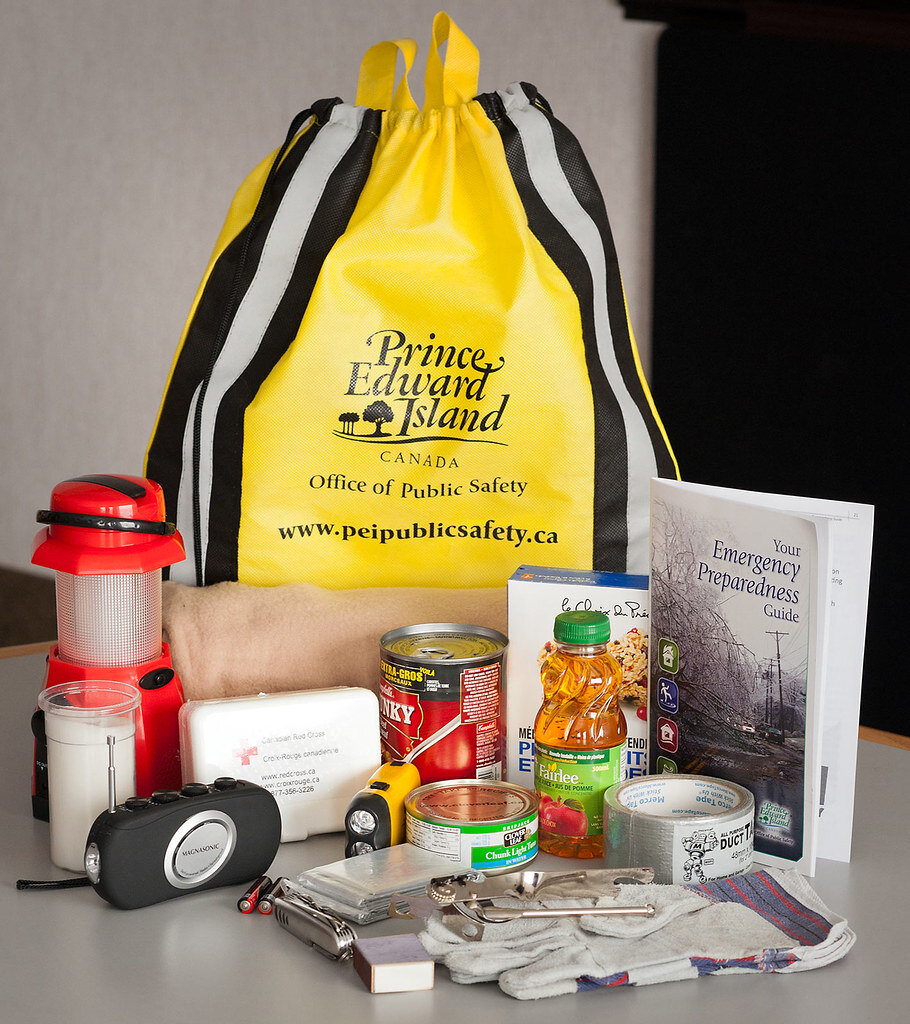September Is National Preparedness Month: Are You Ready To Be Without Power, Running Water, Etc.?
These are some of the items you will need to build your emergency kit.
A major storm has hit our area and your neighborhood just went dark. Your refrigerator stopped humming and you can’t see the clock on your microwave.
What’s more, you don’t know when the power will be restored. Four hours? Tomorrow? What if it’s longer? Are you ready?
If these questions make you uncomfortable, chances are pretty good you don’t have an Emergency Preparedness Kit on hand. So it’s time to make one.
September is National Preparedness Month and we encourage you to make sure you’re ready in case of an emergency. Sudden events such as a storm, wildfire, or a Cascadia Subduction Zone earthquake can affect resources we all rely on, including electricity, roads, cell phones, and other basic services.
Here are nine ways to help ensure you and your family are prepared before an emergency hits:
Build an emergency kit at home, including water, food, and medical supplies – enough for each person for 72 hours (and don’t forget the pets!).
You may not have power after an emergency. Purchase a radio and a flashlight or lantern that can be re-charged by hand or by solar power instead of batteries. You can also stock your emergency kit with hand- or solar-powered cell phone chargers.
Make an Emergency Communication Plan with your family in case you are not together when disaster strikes.
Have emergency supplies in your car in case you’re on the road.
Find out how your workplace is prepared and know what to do if you’re on the job when an emergency happens.
Visit ready.gov to learn more about emergency preparedness, how to build emergency kits, help your community respond, and more.
Research how to turn off your home’s utilities if there’s a risk of a gas leak or electrical fire. Follow your utility’s recommendations to access shut-offs safely.
Download the Federal Emergency Management Agency’s app to get alerts, safety tips, and more.
Learn what to do before, during, and after an earthquake.
At the Oregon Department of Energy, we work on emergency preparedness year round. Earlier this year, we published the Oregon Guidebook for Local Energy Resilience, with recommended actions that small and medium electric utilities can take to become more resilient.
Last month, two of our emergency preparedness experts took a trip to Alaska to witness a coastal refueling process, which could help communities along the Oregon Coast in the event of a disaster.
Learn more about our emergency preparedness work on our website.
"Emergency Preparedness Kit" by Government of Prince Edward Island is licensed under CC BY-NC-ND 2.0

